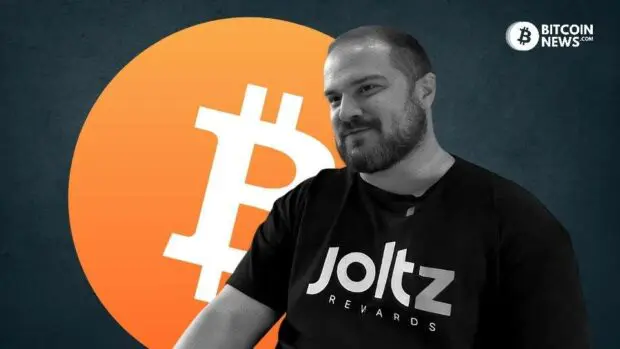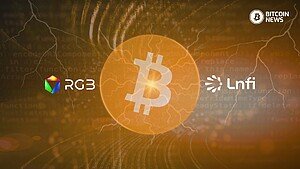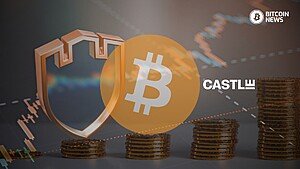Loyalty rewards programs like Starbucks Rewards have changed the way companies do business. According to a CNN report, Starbucks Rewards registered 28.7 million active members in 2022. That’s a lot of coffee, and a lot of money in Starbucks’ pocket.
In total, it is estimated that over $200 billion worth of loyalty rewards exist globally, including airline miles, points, and many other units of loyalty value.
Almost all of these points exist digitally, yet practically none of them utilize public blockchain protocols like Bitcoin. So what would happen if instead of receiving airline miles on eligible purchases, you received bitcoin rewards? Joltz Rewards is on a mission to enable that with the launch of their new API.
The use of the open protocol known as Lightning network the team wants to disrupt the loyalty rewards market with fresh innovation.
Joltz Rewards Makes Loyalty Points Liquid
Most reward programs only let consumers use their points on the very platform they earned them on. For example, you can only use Wendy’s points at a Wendy’s.
Although there are some options, like travel points, which give users flexibility in terms of what purchases they can earn points with, most reward programs are closed systems. Even with airline miles, consumers are still only able to use their rewards points on travel expenses or sell them through inefficient methods.
Overall, merchants are extremely fond of loyalty programs as they allow them to learn more about their customers’ preferences while also encouraging repeat purchases. Unfortunately for them, consumer sentiment towards these rewards programs are negative. A study from Capgemini Consulting found that nearly 90% of social media sentiment is negative towards loyalty programs, with consumers citing a lack of reward “relevance, flexibility, and value” as key pain points.
Bitcoin Rewards As A Service
Companies like Joltz Rewards are solving these problems. Pioneering what they call “bitcoin rewards as a service,” Joltz is building technology that allows bitcoin rewards to be brought to a variety of existing business environments.
Joltz launched its first product at the start of 2023, and it was the world’s first bitcoin rewards integration for popular e-commerce platforms like Shopify and WooCommerce. Merchants on these platforms can offer custom reward offers to customers for spending a certain amount of money at their store.
The obvious value in this system is that instead of earning points that expire or can only be spent at the same retailer, consumers are able to use their sats however they want, whenever they want.
By utilizing the Lightning network, Joltz also ensures seamless transactions between companies and their customers. Sats can be sent to consumers’ wallets nearly instantly, at little to no cost.
Now, Joltz is announcing the launch of its Bitcoin Rewards API, which allows any entity to incorporate turnkey bitcoin reward experiences into their app, website, or business.
The API could be used to add sat rewards that incentivize a wide range of user behavior, including referrals, making purchases, completing an onboarding process, engaging in educational content, and more.
In addition to sats rewards, Joltz is incorporating the use of the Taproot Assets protocol to unlock additional Bitcoin loyalty use cases.
For example, loyalty collectibles could unlock exclusive token-gated content or serve as a more private login on a merchant’s website.
Instead of a simple badge on an app, consumers can now have a “badge” that potentially has value outside of the value given by the company who created it.
In a similar way as to how we see fiat currencies being interoperated with Lightning network payment rails, we could also see the network being used to interoperate across different units of loyalty value, creating an “Open Loyalty” paradigm that creates value for consumers and businesses alike. Joltz is launching its Taproot Assets wallet in the coming weeks.
Why Bitcoin as Loyalty Points ?
As Bitcoin continues along its adoption curve, consumers will increasingly value Bitcoin across all facets of their lives. Reward programs will be no different. According to Bakkt, reward programs that offer bitcoin rewards are likely to attract a younger and more successful demographic, as these are the groups that have shown the most interest in digital assets.
Generally speaking, young consumers are often one of the most valuable demographics for companies, especially in a digital age. So, it makes sense for companies to incentivize their customers to utilize their loyalty program by switching to an “Open Loyalty” model like Joltz.
On top of the fact that Joltz has refused to offer their own token and stick to what’s best for consumers, they are enabling freedom in a historically restricted and heavily regulated space.
This wave of innovation has the power to fundamentally improve the loyalty and rewards systems today. Every business offering bitcoin-based rewards can attract Bitcoiners around the world, likely resulting in hundreds of repeat purchases and other positive of effects on businesses and consumer behavior.
One of the main benefits companies receive from offering loyalty rewards is additional revenue and tying customers closer to a brand or shop. Bitcoiners love to earn and spend sats and when a business offers a reward they deem useful we could see a powerful self-enforcing mechanism which advances overall bitcoin adoption.
With the rewards technologies Joltz is building, a disruption to the loyalty rewards market seems inevitable.










